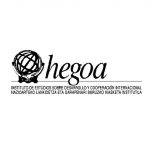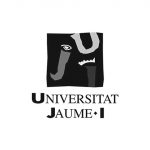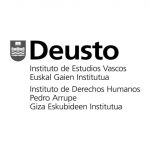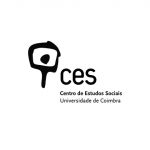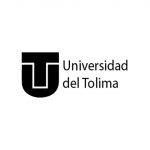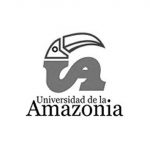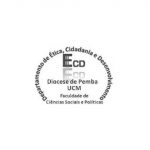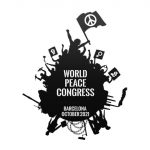
XXXI CULTURE AND PEACE CONVENTION
XXXI CULTURE AND PEACE CONVENTION
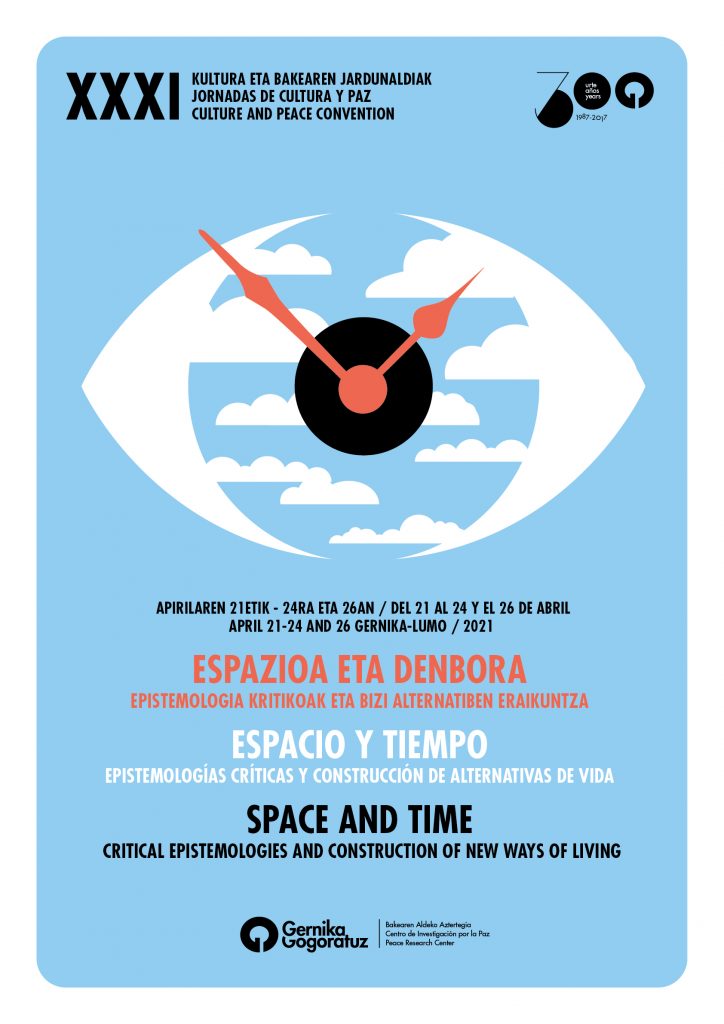
SPACE AND TIME.
Organized by Gernika Gogoratuz in collaboration with the City Council of Gernika-Lumo.
Within the framework of the commemorative activities of the 84th anniversary of the bombing of Gernika, April 26 in 1937.
Gernika Gogoratuz opens a space for dialogue to deepen in epistemological frameworks that contribute to the construction of sustainable alternatives with life. The results of the case studies of the research that were carried out in five territories (Cabo Delgado and Maputo in Mozambique, Tolima and Caquetá in Colombia and Urdaibai in the Basque Country) during the project “Territorios en conflicto 2: acompañamiento de procesos y consolidación de narrativas sobre la sostenibilidad de la vida” 2020-2021, coordinated by Gernika Gogoratuz in collaboration with Gernikatik Mundura and the UPV-EHU, will be presented.
ACADEMIC PROGRAM, April 21st to 23rd, 2021
APRIL 21st, WEDNESDAY
Place: Bizkaia Aretoa, (EHU/UPV), Bilbao.
9:30-10:00 OPENING
- Jokin Alberdi Bidaguren, Professor of Constitutional Law and European Union Law, UPV-EHU.
- Paul Ortega Etcheverry, Director of the Basque Agency for Development Cooperation. Basque Government.
- María Oianguren Idigoras, Director of Gernika Gogoratuz. Peace Research Centre.
10:00-13:00 EXCHANGE OF LIFE ALTERNATIVES IN THE BASQUE COUNTRY. TERRITORIES OF LIFE IN TENSION LOOKING FOR A SOLUTION.
(Face-to-face and via Zoom)
Theoretical framework: Alfonso Dubois.
Former Honorary Professor of International Economics and Development Economics at the University of the Basque Country (UPV/EHU). He was President of the Institute of Studies on Development and International Cooperation HEGOA from 1996 to 2010.
Presentation of experiences: Itxaso Bengoetxea, coordinator of the project “Territories in conflict”.
- Igor Ahedo (Parte Hartuz –UPV/EHU) Participatory experiences in the Basque Country.
- Jokin Alberdi (Gernika Gogoratuz) Busturialdea-Urdaibai/Territories in conflict.
- Rosalba Argote (CEAR Euskadi) Gora Gasteiz!
- Carlos Askunze (REAS Euskadi) Solidarity Economic Alternatives from the Basque Country.
- Eneko Calle (Foro Social) Weaving commitments for peace.
- Ione Ardaiz (Arantzazulab) Building our own model of social innovation.
- Nati Ovelleiro (OEE) Experiences of solidarity: The Artea project.
- Lourdes Imaz (EHIGE)Gure Aukera, other models of school canteens.
- Keko Alonso (Kolore Guztietako Basoak) Towards another forestry policy.
- Asier Gallastegi (Bherria) Public-social partnerships in the Basque Country.
16:30-18:00 CRITICAL EPISTEMOLOGIES.
(Via ZOOM)
- Silvia Rivera Cusicanqui. “A Ch`ixi world is possible. Essays from a present in crisis”.
Sociologist of Aymara origin and one of the main representatives of subaltern thought in Bolivia and Abya Yala, Founder of the Taller de Historia Oral Andina (THOA), a reference for the recovery of the memory of the struggles of those from at the bottom. Her texts are part of the “seedbed of the future” necessary to decolonize societies and powers. In her work she speaks of the ch’ixi as a decolonizing practice and invites us to reflect on Latin American realities and situations. - Teresa Cunha. “Feminisms and epistemologies of the South.”
Sociology and senior researcher at the Center for Social Studies at the University of Coimbra. Coordinates the Winter School ‘Feminist Ecologies of Knowledge’ and the Research Program in Epistemology of the South. Research Associate at CODESRIA and the Center for African Studies at Eduardo Mondlane University, Mozambique. In 2017, she was awarded the Order of Timor-Leste by the President of the Democratic Republic of Timor-Leste. - Presentation: María Oianguren Idigoras, Gernika Gogoratuz.
18:00-19:45 RESISTANCE FROM A FEMINIST PERSPECTIVE. MOZAMBIQUE.
(Via ZOOM)
Cabo Delgado is undergoing major economic and social transformations that are adversely affecting people and the natural environment, and ignoring the needs of local communities.
The capital Maputo has an estimated population of 1,200,000 people. The urban issue itself is distinct and introduces new keys for analysis in the framework of the Territories in Conflict project. The “capital-life” contradictions that are evident in Maputo are the expression of another area of 21st century capitalism.
Exhibitions:
- Diolene Gimo, project coordinator in ASCHA, Maputo.
- Terezinha da Silva, graduate in Social Policy and Development from the London School of Economics and Political Science in the United Kingdom.
- Aventina Matusse, focal point on Gender Violence at the level of the Provincial Directorate of Gender, Children and Social Action in Cabo Delgado.
- Alberto Ernesto, facilitator of short courses on Ethics, and Professional Ethics and Human Rights.
- Presentation: Vasco Coelho, Gernika Gogoratuz.
APRIL 22, THURSDAY.
Place: Elai Alai Aretoa of Gernika-Lumo.
16:30-18:00 SPATIALITY AND TEMPORALITY.
(Via Zoom)
- Gloria Isabel Cuartas Montoya, “Geographies of hope”. Sociologist, politician, social worker and human rights defender, graduated from the Universidad Pontificia Bolivariana. She was mayor of the municipality of Apartadó between 1995 and 1997 and senator of the Republic of Colombia between May and July 2010. Director of the Instituto Distrital de la Participación y Acción Comunal in 2011 and member of the platform “Colombianos y Colombianas por la Paz”.
- Juan Manuel Jiménez Arenas, “The power of love in the construction of peace”. Director of the Institute for Peace and Conflict and full professor of the Department of Prehistory and Archaeology at the University of Granada and associate researcher at the Institute of Anthropology of the University of Zurich (Switzerland). Responsible for the PhD Training Agreement with the Universidad del Valle de Santiago de Cali, Colombia under the auspices of the Asociación Universitaria Iberoamericana de Postgrado (AUIP).
Presentation: Liliana Zambrano Quintero, PhD in Human Rights from the University of Deusto.
18:00-20:00 NON-VIOLENT RESISTANCE. COLOMBIA.
(Via Zoom)
The territory of Tolima is made up of a mosaic of landscapes that express the presence of peoples who have settled and crossed in time and in their practices of appropriation of nature. New territorialities have emerged here and there and all, without exception, have been the fruit of violent births of the constitution of Colombian national society.
The municipality of Doncello in Caquetá in Amazonia, is one of the most important water factories on the planet. It is recognized as the first producer of rubber in the country. It has been a historical enclave of social and peaceful resistance, of the presence of armed actors and in recent years there have been attempts to install extractive companies such as the Colombian oil company – Ecopetrol.
Exhibitions:
- Rómulo Guevara, specialist in education for community participation in the University of Tolima.
- Jhenifer Rodriguez, social communicator – journalist of the University of Tolima.
- Paola Gamboa, Plastic and Visual Artist with an environmental and pacifist approach. Professor at the Universidad de la Amazonia, Caquetá.
- Mireya Quiñones, Specialist in Environmental Education and Management.
APRIL 23, FRIDAY
Place: Elai Alai Aretoa de Gernika-Lumo.
16:00-17:00
(Via Zoom)
- Juan Gutiérrez, “Hebras de paz viva”
Dr. civil engineer and PhD in Philosophy in Hamburg. He participated in the German student movement against the Vietnam War. Worked for eight years as a social worker in a shipyard. He directed an Ecology Center in Madrid, founded and directed the Peace Research Center “Gernika Gogoratuz. He is a member and advisor of the Association 11-M Affected by Terrorism and the World Network of People Affected by Political Violence. He cooperates with the Laboratorio del procomún and Medialab-Prado. President of the Hebras de Paz Association.
17:00-19:00 ART IN THE TERRITORIES. BATZART ¡URDAIBAI
(Via Zoom)
Faced with the environmental, social, cultural and gender problems and challenges that can be detected in the Biosphere Reserve of Urdaibai and the region of Busturialdea (Basque Country), there is also resistance and alternatives that emerge and are articulated within the associative movements.
Working groups in the framework of the international project “Territories in conflict. 2018-2021″:
Exhibitions
- Xabier Arana Eiguren, Bachelor in Biology and Master in Environmental Assessment and Recovery by the UPV-EHU.
- Alex Carrascosa, Artivist for Peace. Designer and facilitator of Dialogue Processes, CreActive Conflict Transformation and Citizen Participation.
- Sara Nicholson Mendieta, Coordinator of Gernikatik Mundura. Feminist and anti-racist activist.
- Presentation: Itxaso Bengoetxea, Gernika Gogoratuz.
COMMEMORATIVE PROGRAM 84TH ANNIVERSARY OF THE BOMBING OF GERNIKA
APRIL 24, SATURDAY
Place: Elai Alai Aretoa of Gernika-Lumo
17:00-19:30 PUBLIC POLICIES OF MEMORY. APPROACH FROM SOCIAL SCIENCES, LAW, MUSIC AND LITERATURE.
Colloquium. The contribution of memory to the principles of truth, justice and reparation.
(Via Zoom)
17:00:17:15 Presentation
- Jokin Garatea, Councilor of Culture of the City Council of Gernika-Lumo and President of the Kultur Etxea Foundation.
17:15-19:30 The bombing of Gernika. An approach from the social sciences.
- Moderation: María Oianguren, Gernika Gogoratuz. Gernika Gogoratuz. Peace Research Center.
- Kepa Fernandez de Larrinoa
Ethnographer of ritual behavior and collective cultural representations. PhD in Social Anthropology from the London School of Economics (University of London) and Master of Arts in Symbolic Anthropology from the University of Western Ontario (Canada). - Daniel Rementeria Arruza
Sociocultural anthropologist, DEA by the UPV/EHU, specialized in the field of the Biosphere Reserve of Urdaibai, and in the analysis of cultural and representational processes around the intangible cultural heritage. Authors of the research “Cultural bonanzas and mercantile barbarisms. From the memory of the bombing of Gernika and other cultural assets” 2021. - Mari Jose Olaziregi
PhD in Basque Philology and Professor of Basque Literature at the Faculty of Arts of the UPV/EHU. She has been assistant professor at the Center for Basque Studies at the University of Nevada (USA). She is a member of the Royal Academy of the Basque Language, and director of the Basque Literature Series of the Center for Basque Studies and of the consolidated research group MHLI (Historical Memory in Iberian Literatures).
APRIL 26, MONDAY
Gernika-Lumo
Commemorative date: 84th Anniversary of the Bombing of Gernika.
12:00 Tribute to Jose Labauria. Floral tribute at the sculpture of José Labauria. Plaza José Labauria.
12:30 Tribute to George L. Steer and war correspondents. Floral tribute at the sculpture dedicated to the journalist.
15:45 “4 minutu ekimena” Replication of the ringing of bells and siren.
16:30 Response and floral tribute for the victims of the bombing. Zallo Cemetery. Gernika.
INFORMATION:
The conference will be semi-presential and will be broadcast via ZOOM.
Registration for the conference is free of charge and it is necessary to send the registration form.
Sponsor
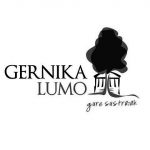

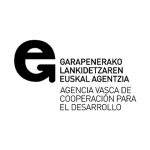
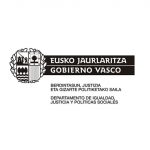
Collaborate



